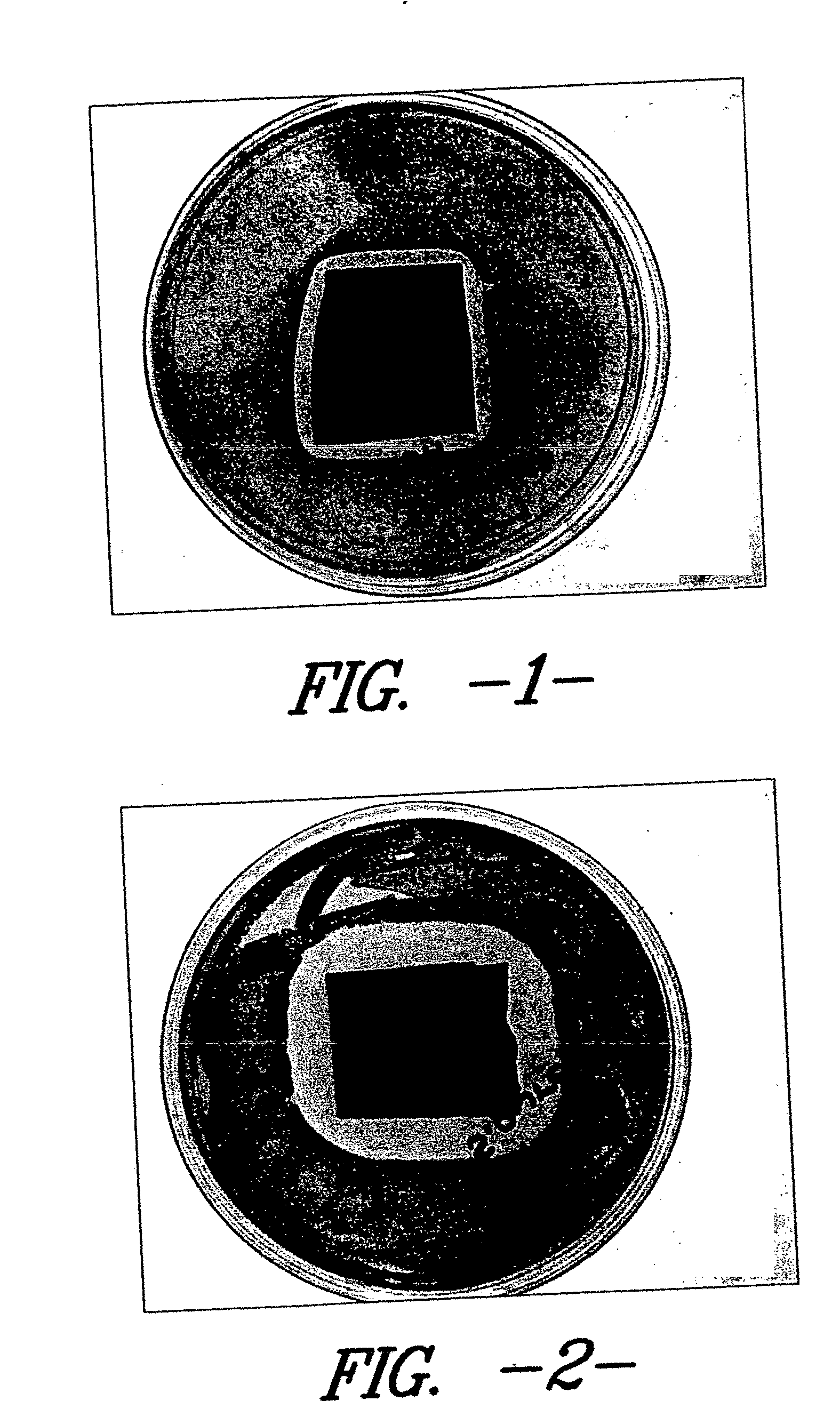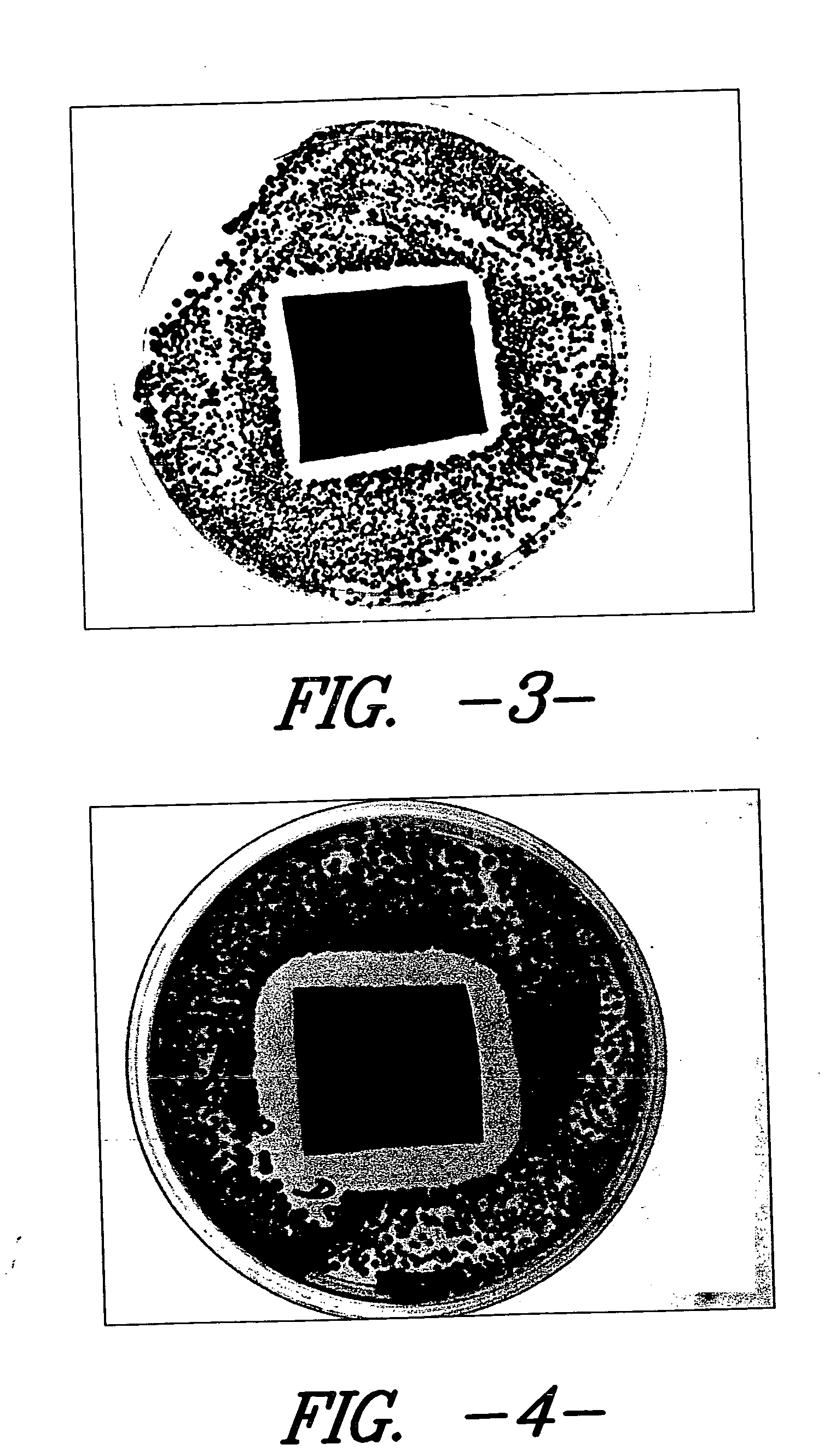Method for producing silver-containing antimicrobial fabric
a technology of antimicrobial fabrics and silver-containing materials, which is applied in the field of antimicrobial fabrics, can solve the problems of silver entering the wound and becoming ingested by undesirables, skin infections can become much more serious, and infections of blood, bones, or hear
- Summary
- Abstract
- Description
- Claims
- Application Information
AI Technical Summary
Problems solved by technology
Method used
Image
Examples
example 2
The formulation was applied to the warp knit fabric via foam application to the face of the fabric. Example 2 was tested for a variety of characteristics as described below.
example 3
The formulation was applied to the warp knit fabric via foam application to the back of the fabric. Example 3 was tested for a variety of characteristics as described below.
Cold Home Wash Procedure (AATCC Method 130-1995)
Example 1 was tested for wash durability with regard to antimicrobial efficacy against both Staphylococcus aureus and Klebsiella pneumoniae. The wash procedure was performed according to MTCC Method 130-1995 using water having a temperature of between about 65 and about 70 degrees F.
Test Microbes
Gram positive and Gram negative microbes were chosen to illustrate the effectiveness of the antimicrobial finish topically applied to the fabric to both types of organisms. Gram positive organisms include, for example and without limitation, Staphylococcus aureus, Clostridium perfringens, and Bacillus cereus. Gram negative organisms include, for example and without limitation, Klebsiella pneumoniae, Escherichia coli, and Pseudomonas aeruginosa. In the Examples illus...
example 1
determine its ability to controllably release surface available silver.
A 10× strength stock extraction solution of a phosphate buffer solution (PBS) was prepared by combining (in a 1L flask) 144.46 g of sodium phosphate with 71.18 g of potassium phosphate. Deionized water was then added to the 1 L flask until the flask contained a total volume of 1000 ml. The contents of the flask were mixed with a stir bar until all salts were completely dissolved. The 10× PBS stock extraction solution was then diluted to 1× by diluting 100 ml of PBS 10× stock to 1000 ml using deionized water.
Ten grams of the fabric was then immersed in a container holding 100 mL of the 1×PBS extraction buffer for 24 hours at 37 degrees C. The extraction solution was then analyzed by Atomic Absorption Spectrophotometer for a measurement of available silver removed from the surface of the fabric.
Example 1 controllably released 7.3 μg of silver per square centimeter of fabric from its surface in a 24 hour period...
PUM
| Property | Measurement | Unit |
|---|---|---|
| chemical instability | aaaaa | aaaaa |
| non-electrically conductive | aaaaa | aaaaa |
| forces | aaaaa | aaaaa |
Abstract
Description
Claims
Application Information
 Login to View More
Login to View More - R&D
- Intellectual Property
- Life Sciences
- Materials
- Tech Scout
- Unparalleled Data Quality
- Higher Quality Content
- 60% Fewer Hallucinations
Browse by: Latest US Patents, China's latest patents, Technical Efficacy Thesaurus, Application Domain, Technology Topic, Popular Technical Reports.
© 2025 PatSnap. All rights reserved.Legal|Privacy policy|Modern Slavery Act Transparency Statement|Sitemap|About US| Contact US: help@patsnap.com


